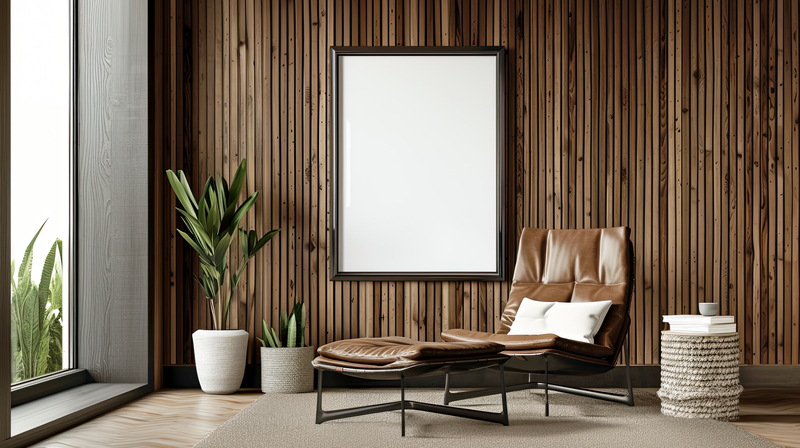
Minimalism can make us calmer, happier and help protect the planet — these experts explain why
When you hear the word minimalism, sparse spaces, cool neutrals and sharp lines probably spring to mind. But while some minimalist interiors might express these tropes, the design trend is about much more than that.
‘Minimalism in interior design doesn’t mean that you live in a cold, white modern space without the objects that you like,’ says Belgian interior designer and furniture designer Nathalie Deboel. ‘It’s about the meaning of the things you own. Warm minimalism or soft minimalism is more about the style, the colors and the materials that we use to create a peaceful space. This often means using soft colors and natural materials.’
For Russell Pinch, co-founder of furniture and lighting design brand PINCH, minimalism is about the ‘beauty found in simplicity’ and ‘achieving a quiet and elegant aesthetic’. He explains: ‘We live in a cluttered world and understand that any furniture or product must work hard to win its place—so we refine our designs until we arrive at our idea of perfection: timeless furniture that is hardworking, meticulously considered, and deserving of its space.’
So rather than being rooted to a particular aesthetic, minimalism is more about a design process or philosophy. ‘For me, minimalism means ‘the essence,’ says Nathalie Deboel. ‘It’s how I reduce distractions in my design, so I can focus more on what matters.’
Minimalism as a lifestyle
Minimalism isn’t just a design ethos: it’s a way of life. ‘It’s a tool to help you to prioritize what’s important,’ says Nathalie Deboel. ‘It’s the intentional promotion of the things that bring you joy and the removal of those that do not.’
Last year, research by a team at the University of North Texas suggested that minimalism could even make people happier. The team analyzed studies on the emotional impact of minimalism (or “voluntary simplicity”, in their words). They found that 80–85 percent of the studies reported a connection between voluntary simplicity and wellbeing.
We asked Joshua Hook, Professor of Psychology at the University of North Texas and leader of the study, to share his definition of minimalism: ‘There’s a lot of variability in how people craft a minimalist lifestyle, but I would say it has to do with living with less, so you can focus more on the things that are important to you,’ he says.
Enhancing our wellbeing
So why could minimalist houses have a positive impact on wellbeing? ‘I think there are a couple of reasons,’ says Joshua Hook. ‘Having a lot of stuff can be stressful, because you have to take care of it, replace it, worry about it getting stolen, etc. Also, if you clear out some of the clutter in your life, you have more time and energy to focus on your core values—those things that are most important to you.’
He continues: ‘Minimalism enables me to spend time with friends/family, and focus on health and meaningful work. But everyone has to decide for themselves what their core values are, and whether minimalism fits with them.’
For Nathalie Deboel, a minimalist lifestyle promotes a sense of calm. ‘[The goal of minimalism is] to feel free in your mind, to live an intentional life, and to find an inner peace,’ she says. ‘We only have a certain amount of energy, time and space in our lives. In order to make the most of it, we must be intentional about how we’re living each day.’
A tonic to modern lives
Minimalism originates from the late 1950s, but in recent years there’s been a resurgence of interest in its ideas. Just look at the success of Marie Kondo, who has sold 10 million copies of her bible The Life-Changing Magic of Tidying Up and taught people around the world how to declutter a room. Or Joshua Fields Millburn and Ryan Nicodemus’ ‘The Minimalists’ podcast, which has been downloaded more than 100 million times. The duo’s Netflix documentary on the topic has even been nominated for an Emmy.
When you look at the society we live in, this renewed interest in a simpler way of being is unsurprising. ‘We live in a society that creates false value on owning more stuff and having no time to use,’ says Nathalie Deboel. ‘The constant pursuit of bigger and better is an endless cycle. It may seem like an overwhelming challenge, but living a more minimal lifestyle helps us to listen more to our real needs and our real values. It creates space in our home, simplifies our lives and creates a sense of peace. This means we can become more flexible with our time, have more energy and more productivity.’
Joshua Hook agrees: ‘In the west, a lot of people have become wealthy and accrued a lot of stuff, but still feel unhappy. They bought the lie that being rich and having a lot of stuff would lead to happiness and meaning, but it doesn’t always work. Happiness and meaning comes from discovering your core values and living a life that is aligned with them.’
It could also help address some of the world’s most pressing issues. ‘There are a lot of people struggling with stress, anxiety, and other mental health problems, and minimalism could potentially help with that,’ says Joshua Hook. ‘Also, at a broader level, our current pace of consumption is unsustainable from an environmental perspective, and I think minimalism could potentially help with that as well.’
By helping to create balance both within and outside of ourselves, minimalism provides a better way to decorate our homes, and to live our lives.
Kate Hollowood, Living Simply

